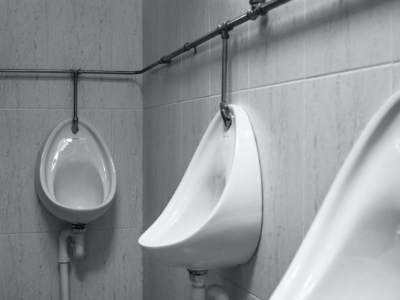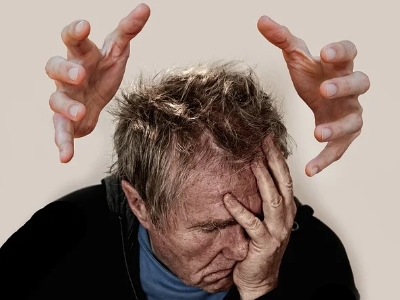What Age Does Prostate Enlargement Start?

The prostate is a small gland in men that produces semen. It is located below the bladder in front of the rectum, and it wraps around the tube that carries urine and semen out of the body. The prostate tends to grow larger as you get older. But, if your prostate gets too large, it can cause several health issues including prostate enlargement.

Symptoms of Prostate Problems
- Frequent urge to urinate
- Blood in urine or semen
- Pain or burning sensation during urination
- Painful ejaculation request urge to urinate at night
- Frequent pain or stiffness in the lower back
- Pain or stiffness in the hips, rectal, or pelvic area
- Dribbling of urine
Less common signs and symptoms include:
- Urinary tract infection
- Inability to urinate
- Blood in the urine
Age When Prostate Enlargement Start
Prostate growth is a normal part of aging. At the age of 25, the adult prostate begins to enlarge slowly. The condition is called benign prostatic hyperplasia, but it has nothing to do with cancer. Around the age of 50, many men begin to have uncomfortable symptoms as a result of prostate enlargement.
The signs and symptoms of prostate enlargelemt are accompanied by frequent urination at night or often difficulty getting a strong stream started or emptying the bladder. This happened because the prostate gland surrounds the tube that carries urine from the bladder and out through the penis. As the prostate grows, it compresses that tube, and that makes urination tough.
Can Men in Their 20’s Develop an Enlarged Prostate?
Studies show that men can develop microscopic signs of benign prostatic hyperplasia as early as in their 20s and 30s. In contrast, BPH or enlarged prostate is very rare in men in their 20s. Typically, urinary symptoms in men during their 20s are caused by other problems. Prostate enlargement may cause symptoms but it’s usually from infection rather than from growth.
The prevalence of symptomatic BPH is low in men aged 30-39, but there are a significant number of men starting to exhibit symptoms of an enlarged prostate at this age. In most cases, symptoms are mild, but they can also be moderate or severe enough to require treatment.

Risk Factors
Most men have continued prostate growth throughout life. Prostate enlargement can cause urinary symptoms or substantially block urine flow in many men as a result of this continued growth. Risk factors for prostate gland enlargement include:
- Aging. In men younger than 40, prostate gland enlargement rarely causes symptoms. About one-third of men experience moderate to severe symptoms by age 60, and about half do so by age 80.
- Family history. Prostate problems are more likely to affect you if you have a blood relative with prostate issues, such as your father or brother.
- Diabetes and heart disease. BPH is associated with diabetes, heart disease, and beta blockers.
Medications for Enlarged Prostate
Dutasteride is a recommended medication for prostate enlargement. This is used to treat a disorder known as benign prostatic hyperplasia found in men. It inhibits and lowers the amount of the hormone that causes prostate growth. Discuss with your doctor the benefits and risks of taking this medication to ensure a successful treatment.
Other Recommended Prescriptions for Enlarged Prostate
- Alpha-blockers. These medications relax the bladder neck muscles and muscle fibers in the prostate, making urination easier.
- 5-alpha reductase inhibitors. These medications shrink your prostate by preventing hormonal changes that cause prostate growth
- Combination drug therapy. Alpha-blockers and 5-alpha reductase inhibitors may be prescribed together if either medication alone is ineffective.
- Tadalafil. Prostate enlargement may also be treated with this medication, which is commonly used to treat erectile dysfunction.

Lifestyle and Home Remedies to Manage Enlarged Prostate
- Limit beverages to avoid middle-of-the-night trips to the toilet.
- Pee when you first feel the urge. Waiting too long might overstretch the bladder muscle and cause damage.
- Limit caffeine and alcohol as they can increase urine production, irritate the bladder and worsen symptoms.
- Stay active. Inactivity contributes to urine retention. Even a small amount of exercise can help reduce urinary problems caused by an enlarged prostate.
- Keep warm because colder temperatures can cause urine retention.



